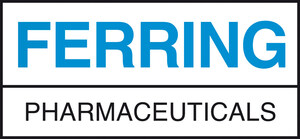New Article Reveals Trend Toward Greater Use of Human Menopausal Gonadotropin in In Vitro Fertilization
Review Article of hMG Published in US Obstetrics & Gynecology
PARSIPPANY, N.J., March 8 /PRNewswire/ -- The U.S. infertility specialty has empirically incorporated greater amounts of human menopausal gonadotropin (hMG) into stimulation protocols, according to a new review article, "Gonadotropins in the Treatment of Infertility" by George T. Koulianos, MD, published in a recent issue of US Obstetrics & Gynecology, supported by an educational grant from Ferring Pharmaceuticals.(1) The article reviews the wealth of clinical evidence supporting this trend, and demonstrates how the use of gonadotropins in the treatment of infertility, especially in assisted reproductive technologies, has significantly improved outcomes.
"Gonadotropins...have been especially important in improving the efficiency of in vitro fertilization," said Dr. Koulianos. "The many large, complex studies conducted over the past decade demonstrate the unique attributes of hMG, especially highly purified hMG, that lead to better outcomes. The study results parallel the steady increase in the use of hMG, indicating that the field has empirically chosen hMG as its base of stimulation."
Here are highlights from the article:
- For the approval of MENOPUR® (menotropins for injection, USP) (HP-hMG), based on results of the largest IVF trial ever conducted (EISG)(2), trends favored hMG over recombinant follicle stimulating hormone (rFSH) in pregnancy rates, although there was no statistical significance. A post-hoc analysis of the study by Platteau et al.(3) suggested that hMG outperformed rFSH in IVF, and when intracytoplasmic sperm injection (ICSI) was used, the two treatments appeared to be equivalent. In this post-hoc analysis, lower pregnancy rates were seen in patients with lower serum hCG levels.
- The Menotrophin versus Recombinant FSH in vitro Fertilization Trial (MERiT), the most extensive IVF study ever performed to date, with 731 patients, demonstrated significant differences in endocrine profile, a more natural stimulation with hMG, and greater capacity for pregnancy and live births from hMG-stimulated oocytes.
Odds Ratios Showing the Effect of hMG and rFSH on Live Birth Rate*
Study or hMG rFSH Favors Weight Peto OR
Subcategory n/N n/N hMG % 95% CI
----------- --- --- --- --- ------
Rashidi, 2005 4/30 3/30 yes 1.21 1.37 (0.29, 6.56)
Ng, 2001 4/20 4/20 yes 1.26 1.00 (0.22, 4.62)
Belash, 2003 6/30 8/30 2.09 0.69 (0.21, 2.27)
Gordon, 2001 9/29 9/39 yes 2.52 1.50 (0.51, 4.41)
Jansen, 1998 6/35 12/54 2.66 0.73 (0.26, 2.10)
Kilani, 2003 12/50 11/50 yes 3.43 1.12 (0.44, 2.03)
Westergaard,
2001 67/189 53/190 yes 15.76 1.42 (0.92, 2.18)
Hompes, 2007 79/312 75/317 yes 22.33 1.09 (0.76, 1.57)
Euro-Israel,
2002 80/395 67/386 yes 22.90 1.21 (0.84, 1.73)
Anderson,
2006 96/363 82/368 yes 25.85 1.25 (0.89, 1.76)
Total (95% CI) 1,453 1,484 100 1.20 (1.01, 1.42)
Total events: 363 (hMG), 324 (rFSH)
Test for heterogeneity: X(2)= 2.81, df = 9 (p=0.97); p=0%
Test for overall effect: Z = 2.04 (p=0.04)
OR=odds ratio; CI=confidence interval; df=degrees of freedom; Z=vector of other variables
*Chart adapted from Figure 7 in the review article
- The Weghofer I study showed a greater number of cytogenetically normal embryos when hMG was used compared with the rFSH group (59.8+26.7 versus 45.3+26.5).
About MENOPUR®
MENOPUR® administered subcutaneously is indicated for the development of multiple follicles and pregnancy in the ovulatory patients participating in an ART program.
Important Safety Information
Only physicians thoroughly familiar with infertility treatment, including the risk of multiple births and adverse reactions, should prescribe MENOPUR®. MENOPUR® is a potent substance capable of causing mild to severe adverse reactions, including OHSS (overall incidence 3.8%), with or without pulmonary or vascular complications, in women undergoing therapy for infertility. MENOPUR® is contraindicated in women who have a high FSH level indicating primary ovarian failure; uncontrolled thyroid and adrenal dysfunction; an organic intracranial lesion such as a pituitary tumor; sex hormone dependent tumors of the reproductive tract and accessory organs; abnormal uterine bleeding of undetermined origin; ovarian cysts or enlargement not due to polycystic ovary syndrome; prior hypersensitivity to menotropins or MENOPUR®. MENOPUR® is not indicated in women who are pregnant. There are limited human data on the effects of menotropins when administered during pregnancy.
Please visit www.ferringfertility.com for Full Prescribing Information for MENOPUR®.
Footnotes
- Article published in December 2009 issue of US Obstetrics and Gynecology.
- Efficacy and safety of highly purified menotropin versus recombinant follicle-stimulating hormone in in vitro fertilization/intracytoplasmic sperm injection cycles: a randomized, comparative trial, Fertil Steril, 2002;78:520-28.
- Platteau P, Nyboe Andersen A, Loft A, et al., Highly purified HMG versus recombinant fSH for ovarian stimulation in IVF cycles, Reprod Biomed Online, 2008;17:190-98.
SOURCE Ferring Pharmaceuticals
WANT YOUR COMPANY'S NEWS FEATURED ON PRNEWSWIRE.COM?
Newsrooms &
Influencers
Digital Media
Outlets
Journalists
Opted In





Share this article